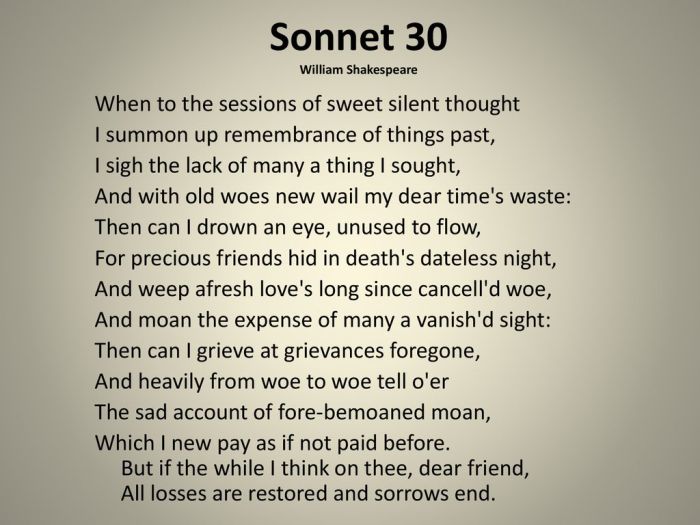All losses are restored and sorrows end – All losses are restored, and sorrows end – this evocative phrase encapsulates the profound human experience of overcoming adversity and finding meaning in the face of challenges. This narrative explores the transformative power of resilience, hope, and time, providing insights and strategies for navigating life’s inevitable losses and sorrows.
Throughout history, countless individuals have demonstrated remarkable resilience in the face of setbacks, inspiring us with their ability to rise above challenges and find purpose in adversity. Their stories serve as a testament to the human spirit’s indomitable strength and capacity for growth.
Interpretation of “All Losses are Restored and Sorrows End”

The phrase “All losses are restored and sorrows end” conveys the metaphorical idea that in the face of adversity and challenges, there is hope for recovery, restoration, and the end of suffering.
Lossescan refer to various forms of deprivation, such as the loss of loved ones, financial setbacks, or the loss of physical or mental health. Sorrowsencompass a range of negative emotions, including grief, sadness, disappointment, and despair.
Restoration suggests the possibility of regaining what has been lost, whether it be material possessions, relationships, or a sense of well-being. The end of sorrows implies a transition from a state of distress to one of comfort and healing.
The Importance of Resilience and Hope

Resilience is a crucial attribute in navigating losses and sorrows. It enables individuals to bounce back from setbacks, adapt to changing circumstances, and maintain a positive outlook despite adversity.
Hope plays a vital role in sustaining resilience. It provides a sense of optimism and the belief that better times lie ahead. Hope motivates individuals to persevere through challenges and seek out opportunities for growth and restoration.
- Example: Individuals who have experienced significant trauma or loss may demonstrate resilience by finding ways to cope and rebuild their lives.
- Example: People who face chronic illness may maintain hope by focusing on small victories and seeking support from loved ones.
Strategies for Overcoming Losses and Sorrows

Coping with and overcoming losses and sorrows require a combination of self-care, support systems, and professional help when needed.
Self-careinvolves prioritizing physical and emotional well-being through activities such as exercise, healthy eating, and getting enough sleep.
Support systemsprovide a network of family, friends, or support groups that offer emotional support, practical assistance, and a sense of belonging.
Professional helpmay be necessary in cases where individuals struggle to cope on their own. Therapists can provide guidance, support, and coping mechanisms to help individuals process their emotions and develop resilience.
- Example: Joining a support group for individuals who have experienced similar losses can provide a sense of community and validation.
- Example: Seeking therapy can help individuals identify and address underlying issues that may be contributing to their distress.
The Transformative Power of Time
Time plays a significant role in the healing and restoration process after losses and sorrows. The passage of time allows for the gradual processing of emotions and the gradual rebuilding of life.
Stages of grief, as proposed by Elisabeth Kübler-Ross, include denial, anger, bargaining, depression, and acceptance. These stages are not linear and individuals may experience them in different ways and at different times.
Time can bring about a sense of closure and acceptance, as individuals come to terms with their losses and find ways to move forward.
- Example: Over time, individuals may find that the pain of loss gradually diminishes and they are able to recall their loved ones with fondness.
- Example: With time, individuals may develop new coping mechanisms and find new sources of meaning and purpose in their lives.
Finding Meaning and Purpose: All Losses Are Restored And Sorrows End
In the face of adversity, individuals may seek to find meaning and purpose in their experiences. This process can lead to personal transformation and growth.
Post-traumatic growthrefers to the positive psychological changes that can occur as a result of adversity. These changes may include increased resilience, a greater appreciation for life, and a stronger sense of purpose.
- Example: Individuals who have survived a traumatic event may find meaning in sharing their story to help others.
- Example: People who have experienced loss may find purpose in dedicating their time to charitable causes that support others.
Cultural and Societal Perspectives
Cultural and societal perspectives on loss, grief, and restoration vary widely. These differences can influence the way individuals cope with and overcome adversity.
In some cultures, grief is expressed openly and collectively, while in others it is seen as a private matter.
Cultural beliefs and practices can provide support and guidance during times of loss. Rituals, ceremonies, and traditions can help individuals to process their emotions and find meaning in their experiences.
- Example: In some cultures, funeral rituals provide a structured way for individuals to mourn and say goodbye to their loved ones.
- Example: In other cultures, support groups or community gatherings provide a sense of belonging and shared experiences for those who have experienced loss.
FAQ Corner
What is the metaphorical meaning of “losses” and “sorrows” in the phrase “All losses are restored and sorrows end”?
Losses refer to any form of adversity, setback, or deprivation that can cause emotional pain, while sorrows represent the deep emotional distress and grief that accompany such experiences.
How does resilience play a role in overcoming losses and sorrows?
Resilience is the ability to bounce back from adversity, adapt to challenges, and maintain a positive outlook despite setbacks. It allows individuals to navigate losses and sorrows with strength, flexibility, and a belief in their ability to overcome.
What practical strategies can help individuals cope with losses and sorrows?
Effective coping strategies include self-care practices such as mindfulness, exercise, and healthy sleep habits; seeking support from loved ones, support groups, or mental health professionals; and engaging in activities that bring joy and meaning.